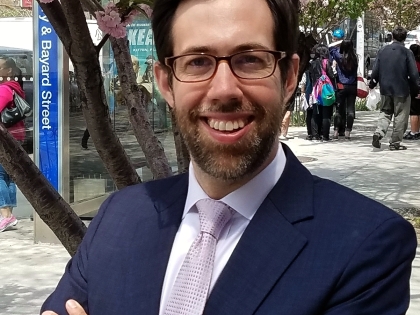
Squadron, Rozic Secure Request For Proposals Encouraging Chinese & Korean High School Equivalency Exam
May 3, 2016

NEW YORK – Today, State Senator Daniel Squadron and Assemblymember Nily Rozic announced that State Education Commissioner MaryEllen Elia has committed to including language in the high school equivalency exam request for proposals that would encourage Chinese, Korean and other language offerings for the exam. The commitment comes in response to Squadron & Rozic’s March 17th letter urging a Chinese and Korean exam (letter and response attached). In addition to English, the exam is currently offered in Spanish.
Responding to Squadron and Rozic, Commissioner Elia indicates that while none of the three high school equivalency exam providers offer Chinese or Korean exams, the State intends to "include language which would welcome [high school equivalency] editions in languages other than English and Spanish" in their next request for proposals. The State Education Department’s current contract for the exam expires at the end of 2016
"The high school equivalency exam has been offered in languages other than English for years -- that should be extended to Chinese and Korean language exams," said State Senator Daniel Squadron. “High school equivalency exams are a big deal for New Yorkers seeking opportunity and education. I thank Commissioner Elia and the State Education Department for taking this important step to potentially expand language offerings, and thank Assemblymember Rozic and colleagues for their partnership on this important issue.”
"I am pleased to hear that NYSED is working towards greater inclusivity to allow more students to take the TASC exam in their native languages. Today's announcement marks the next steps in ensuring that the education system meets the needs of the City's fastest growing population," said Assemblymember Nily Rozic.
Squadron and Rozic have long pushed legislation (S.582/A.241) in the State Legislature that would require the state’s high school equivalency exam to be offered in Chinese and Korean.
###



